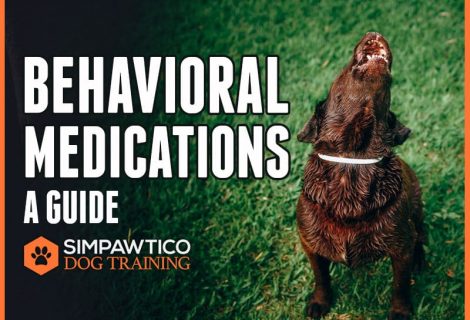pWelcome to part TWO of our travel trio series and in this post we’ll be talking about getting a pet sitter for while you’re away.
Now, This is the second post in our travel trio. In yesterday’s post we discussed leaving your pet at a boarding facility. Today we’re going to look at leaving them with a pet sitter.
PRE-PLANNING
It’s worth saying again like we said in the last video that proper identification and up to date vaccines are must haves. This is responsible pet ownership.
Now if boarding isn’t a good fit for your dog, or you just don’t feel comfortable with any facilities in your area, then you’re going to need a pet sitter. This has several benefits. Just like us, pets are more comfortable in their own home where they know the routines, and may be getting attention from someone they know while you’re away.
Also any non-dog or cat pets you have that can’t go to a traditional boarding facility can also get proper care. This includes fish tanks, small animals like hammies, rats, or Guinea pigs, reptiles, and whatever else you may have. As with dogs and cats, make sure whomever you kindly ask, bribe, or pay to stay is familiar with the care and feeding of all the animals they will be responsible for.
The most convenient option is to get a trusted friend or neighbor to stay with your pets. These are people you already know so the vetting process is much easier. Assuming it’s not a burden on them, and the care of your pets is not a full time job, this is a viable option.
A PRO MAY BE THE BETTER CHOICE
Barring someone you know, hire a professional pet sitter. A professional may in fact be a better option in some cases, over a friend. Many professional pet sitters come with additional skills like pet CPR and first aid. How many of your friends know how to do that?
Professionals also network with other professionals in the pet industry including vets, dog walkers, trainers, and behavior consultants. They may even be part of the same business, or even the same person. In fact some pet sitters offer affordable add-on services such as grooming, walking, and even training.
Many will also bring in the mail, water plants, and other small things to make your home less inviting to burglary.
As we talked about with the boarding facilities, get recommendations. You can start with asking people you know, but better resources will be other pet professionals you may already know and use like your groomer or trainer. Definitely ask your local Humane Society. You can also contact the National Association of Professional Pet Sitters or Pet Sitters International. Check their references, and do your research. Visit their website (which they should have) and trawl through their Facebook. Look up everything.
BONDED & INSURED
In the best cases, a professional pet sitter will be bonded and insured, and I would recommend you use someone that is if at all possible. Not only does this protect you against many unfortunate circumstances while you’re gone, but an insured and bonded professional is someone who’s serious about what they do and has taken the necessary steps to be a professional.
Insurance covers accidents and negligence for both parties. Bonding protects you against theft from the pet sitter or their employees.
Also, check out their training and experience. How long have they been doing this? What professional organizations are they a part of?
As you narrow down your choices, then of course call and schedule an interview. Have them come over and meet your pet if they have not already. See how your dog responds to them and of course see if you like this person’s vibe.
Now, whether you choose a professional pet sitter, or have a friend help you with it, you need to get your ducks in a row well in advance. You have some responsibilities too in this relationship.
YOUR TO-DO LIST
Make sure your pet is socialized. As we talked about in part one, make sure your dog can handle being left with someone. Most healthy, well-behaved dogs can be left just fine. If your dog suffers from some isolation distress, a boarding facility may be the better option. A dog with real separation anxiety is either going to have to go with you or you will need to stay home until the dog is rehabilitated.
Make your reservations as early as possible. Have all your documentation and other bits straightened out before you leave. Leave complete vet contact info, instructions, and resources for your sitter. Seriously guys, don’t half ass this stuff at the last minute.
We tend to take the routines for granted because we do it every day. Someone else though isn’t going to know all the nuances so you’re going to have to leave detailed outlines for them.
What does your dog eat? How often? How much? Where do they sleep? Where do you walk? How far? How long? Where is all the dog’s stuff kept?
You should also leave a document authorizing the person to obtain veterinary care should the need arise. A professional should have all the necessary paperwork ready for you to sign, but if you’re using a friend you’ll need to write up a few things to leave with them.
Make sure they know which vet you use, and can administer medications if your pet takes any.
Are you providing amenities to your sitter? Food? A spare room? Your DVD collection? List them. Delineate also what stuff is off limits.
Show them where the circuit breaker is. If a circuit pops in the middle of the night they’re going to need to know where they can flip it back on.
Have extra supplies on hand in case you get stranded where you’re at. Car trouble, delayed flights, inclement weather are all possibilities you should account for.
What happens if the sitter has car trouble, or an emergency, or becomes ill? Do you have contingency plans in place?
Make sure you both exchange reliable contact info. It’s a two-way street.
Are you giving your sitter a key? How will you get it back?
Make sure you show them the ins and outs of your security system if you have one.
Introduce the sitter to your neighbors if possible, or at least tell them about the person so they don’t call the cops the first time they see someone strange going into your house.
FINAL THOUGHTS
Also, please understand that a pet sitter may not stay at your house 24/7. They do have obligations and family of their own. You can expect that they’ll spend most of their time there, but there will need to be times when your dog is alone for short periods. This is reasonable! Don’t expect 24/7 care unless you’re willing and able to pay handsomely for it. Even a friend doing you a favor deserves some compensation.
Good luck selecting a pet sitter if you choose to use one. Let us know in the comments what your experience has been with a sitter or what questions you may have about a pet sitter. In part three we’ll be looking at some important things to consider if you decide to take your dog or dogs with you when you travel. As always keep learning, keep practicing, and we’ll see you in the next post. Thanks for looking!
RESOURCES
National Association of Professional Pet Sitters (NAPPS)
ASPCA (American Society for the Prevention of Cruelty to Animals)









